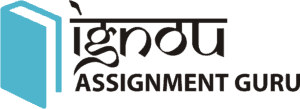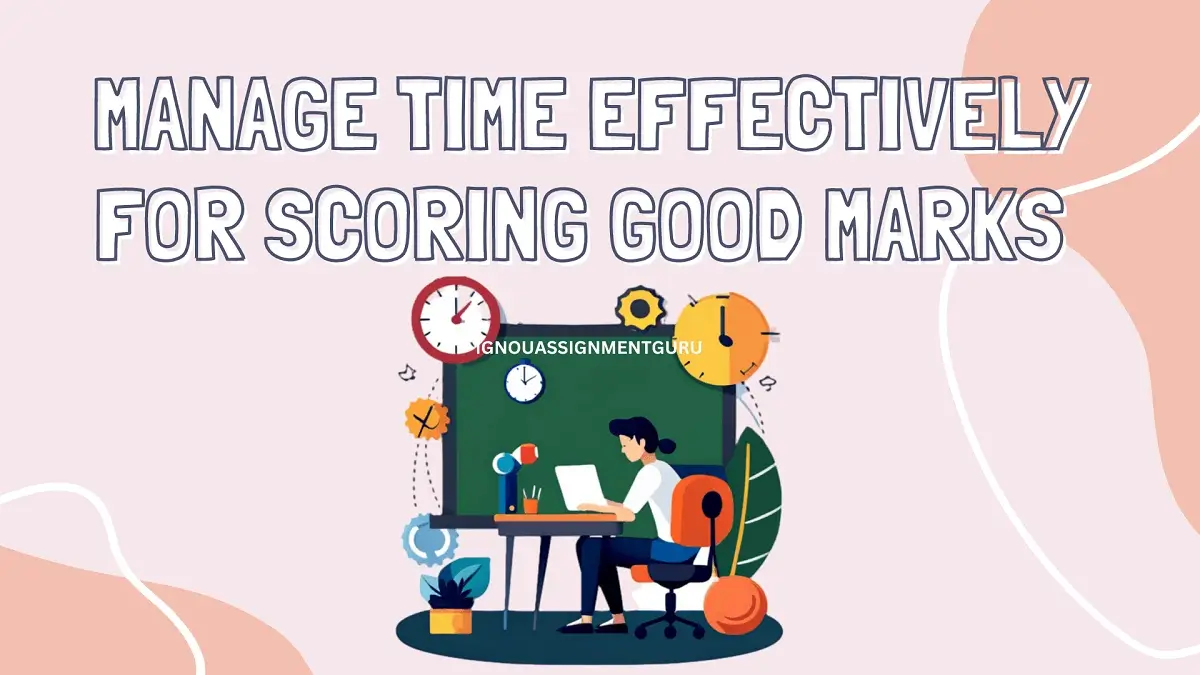How to Manage Time Effectively for Scoring Good Marks
Time management plays a crucial role in achieving academic success. When students learn to manage their time effectively, they can optimize their studying process, reduce stress levels, and ultimately score good marks. In this article, we will explore various strategies and techniques that can help students manage their time efficiently and improve their academic performance.
Understanding Time Management
2.1 Importance of Time Management
Time management is essential for students as it allows them to make the most of their available time. By effectively managing their time, students can prioritize tasks, avoid procrastination, and ensure that they have enough time to dedicate to their studies. Good time management skills also help students develop a sense of discipline and responsibility, which are crucial for academic success.
2.2 Benefits of Effective Time Management
Effective time management offers several benefits to students. It enables them to allocate sufficient time for studying, completing assignments, and participating in extracurricular activities. By managing time well, students can improve their productivity, reduce stress levels, and maintain a healthy work-life balance. Additionally, effective time management allows students to develop self-discipline, which is a valuable skill that extends beyond their academic pursuits.
Setting Priorities and Goals
3.1 Identifying Priorities
To manage time effectively, students need to identify their priorities. They should assess the importance and urgency of various tasks and assignments and rank them accordingly. By understanding their priorities, students can allocate their time and resources efficiently and focus on tasks that have the greatest impact on their academic performance.
3.2 Setting SMART Goals
Setting SMART (Specific, Measurable, Achievable, Relevant, Time-bound) goals is an effective way to manage time. Students should break down their long-term goals into smaller, actionable steps. By setting clear and specific goals, students can track their progress, stay motivated, and make steady progress toward achieving their desired academic outcomes.
Creating a Schedule and Routine
4.1 Time Blocking Technique
One popular technique for effective time management is time blocking. Students can create a schedule that allocates specific time blocks for different activities, such as studying, attending classes, completing assignments, and leisure time. Time blocking helps students stay organized, ensures they allocate sufficient time for each task, and minimizes the chances of overcommitting or missing deadlines.
4.2 Allocating Time for Different Tasks
Students should allocate their time wisely based on the nature and requirements of different tasks. They can dedicate more focused study time for challenging subjects and allocate shorter time slots for lighter tasks. It’s crucial to find the right balance between study, rest, and leisure activities to avoid burnout and maintain productivity.
Avoiding Procrastination
5.1 Understanding the Causes of Procrastination
Procrastination is a common barrier to effective time management. Students may procrastinate due to various reasons such as lack of motivation, fear of failure, or feeling overwhelmed. Recognizing the underlying causes of procrastination can help students address them and develop strategies to overcome this habit.
5.2 Strategies to Overcome Procrastination
To overcome procrastination, students can employ several strategies. Breaking tasks into smaller, manageable chunks can make them less intimidating. Setting deadlines and using productivity tools and apps can also help students stay on track. Additionally, creating a conducive study environment, seeking accountability from peers or mentors, and rewarding oneself after completing tasks can further aid in overcoming procrastination.
Managing Distractions
6.1 Identifying Common Distractions
Distractions can significantly affect time management and productivity. Common distractions include social media, smartphones, noise, and interruptions from friends or family. Identifying these distractions is the first step in managing them effectively.
6.2 Implementing Strategies to Minimize Distractions
To minimize distractions, students can adopt strategies such as turning off notifications on their devices, setting designated study hours, finding a quiet study space, and using website blockers or productivity apps. Creating a conducive environment that minimizes distractions allows students to maintain focus and utilize their time more efficiently.
Effective Study Techniques
7.1 Active Learning Methods
Employing active learning methods can enhance the effectiveness of study sessions. Techniques such as summarizing, self-quizzing, and teaching the material to others can help students retain information better. Active learning promotes engagement, critical thinking, and deep understanding of the subjects being studied.
7.2 Breaking Down Study Sessions
Breaking down study sessions into manageable chunks can prevent information overload and improve retention. Students can utilize techniques like the Pomodoro Technique, where they work for a focused period (e.g., 25 minutes) followed by a short break (e.g., 5 minutes). Regular breaks help maintain concentration and prevent mental fatigue.
Taking Breaks and Relaxation
8.1 Importance of Breaks
Taking breaks is crucial for effective time management and maintaining productivity. Short breaks allow the brain to recharge, prevent burnout, and improve cognitive performance. It is essential to schedule regular breaks during study sessions to optimize learning and retention.
8.2 Relaxation Techniques
Incorporating relaxation techniques into study routines can enhance overall well-being and reduce stress. Deep breathing exercises, meditation, stretching, and physical activities like walking or yoga can help students relax, clear their minds, and rejuvenate their energy levels. These techniques can be particularly beneficial during breaks or as part of a daily self-care routine.
Developing Time Management Skills
9.1 Self-Discipline and Motivation
Self-discipline and motivation are key elements of effective time management. Students can cultivate self-discipline by setting clear goals, creating accountability systems, and practicing self-reflection. Staying motivated requires maintaining a positive mindset, celebrating small achievements, and finding personal incentives for reaching milestones.
9.2 Continuous Improvement
Time management is a skill that can be developed and refined over time. Students should continuously evaluate their strategies, identify areas for improvement, and adapt their approaches accordingly. Experimenting with different techniques and incorporating feedback from their own experiences can lead to continuous growth in time management skills.
Conclusion
Effective time management is a valuable skill for students aiming to score good marks. By understanding the importance of time management, setting priorities and goals, creating schedules, avoiding procrastination, managing distractions, employing effective study techniques, taking breaks, and developing self-discipline, students can optimize their time and improve their academic performance. Implementing these strategies will not only lead to better grades but also enhance overall well-being and success in both personal and professional endeavors.
FAQ
Can I skip certain topics to save time?
While it's important to prioritize the syllabus, it is generally not advisable to skip topics entirely. Try to cover the essential concepts from each topic, even if it means allocating less time to certain areas. Understanding the basics of every topic will give you a comprehensive understanding of the subject matter.
How can I retain the information I study within a short period?
To retain information effectively, employ active learning techniques such as summarizing key points, creating flashcards, or teaching the concepts to someone else. Regularly review your notes and practice recall by testing yourself with quizzes or self-assessment exercises. Spaced repetition can also help reinforce your memory.
Should I study alone or join a study group?
The choice between studying alone or joining a study group depends on your personal preferences and learning style. Some students benefit from studying alone as it allows them to focus better, while others find study groups helpful for discussion and collaboration. Experiment and find the approach that works best for you.
What should I do if I feel overwhelmed by the time constraint?
If you feel overwhelmed, take a step back and reassess your study schedule. Break down your tasks into smaller, manageable portions. Prioritize and focus on the most important topics. Seek support from mentors, friends, or family members to help alleviate stress and provide guidance. Remember to take breaks and practice self-care to maintain a healthy mindset.





